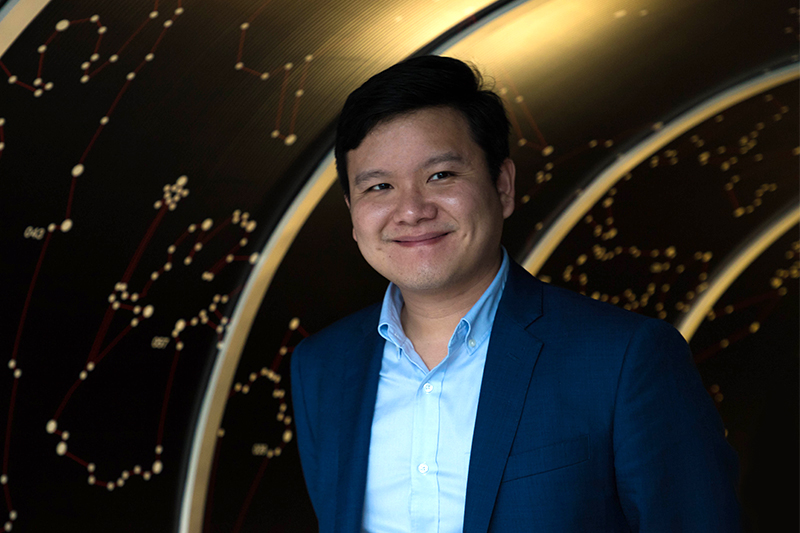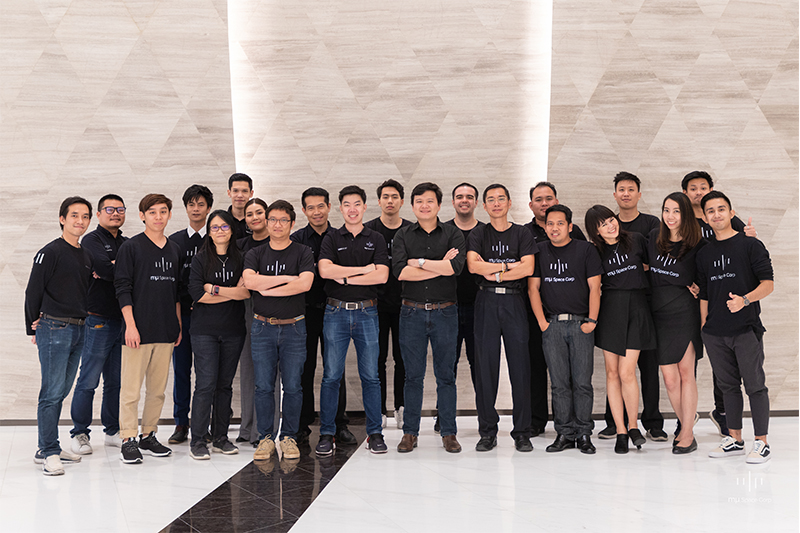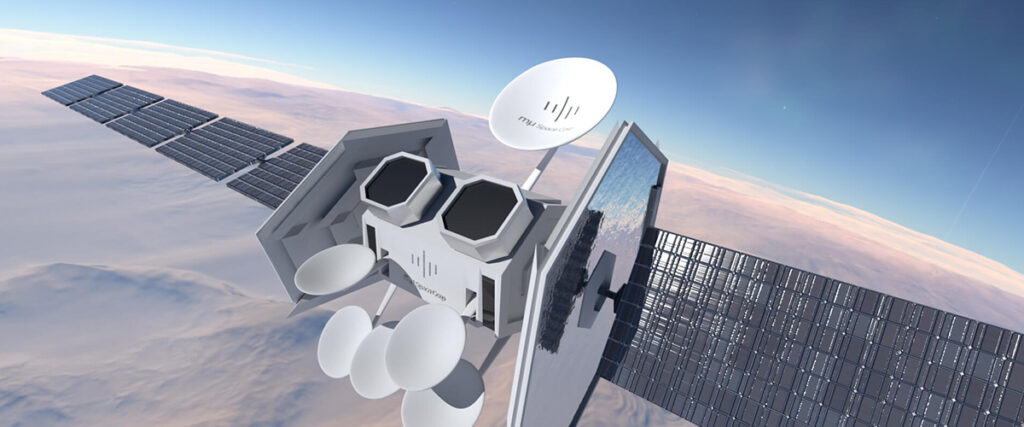It’s literally rocket science. Meet CEO James Yenbamroong, the founder of mu Space Corp and the man making space flight happen in the Asia-Pacific region.
With a degree in aerospace engineering, James Yenbamroong spent his childhood looking up at the stars. As an adult, he has continued to look in the same direction with his Bangkok-based satellite and space company mu Space Corp. Having recently launched the first payload from Asia into space with US aerospace company Blue Origin, they are also partnering with telecommunications companies in Thailand and other southeast Asian countries to provide rural areas with internet access. An ardent supporter of technology as a means of improving our quality of life, James explains, “Founding mu Space gave me an opportunity to prove that passion. I believe satellite applications are beneficial to people, particularly in remote areas. Satellite, for example, can be used to deliver distance learning to students in rural schools or e-health services in far community clinics.” It also proved vital when Mu Space Corp and their systems were called to help in the recent evacuation of a young football team trapped in caves in Chiang Rai. Here we discuss how he plans to make it all happen.

Space is a growing market. In the next 30 years, the space industry worldwide is predicted to be worth USD 2.7 trillion, driven primarily by satellite companies and new space technology. “It is a funding-intensive market,” James admits. “No other Asia-Pacific private company has successfully launched a space travel service for private citizens or is really focused on astronautic research and development. And that’s how mu Space is going to position itself in the market.”
Formed in June 2017, the company is taking big strides forward. “We want Thailand to step up,” James asserts. “As yet, space technology is still an untapped market in the Asia-Pacific region. We want to make Thailand the main hub for space technology development and research.” The Thai government, too, has been keen to promote satellite communications nationwide, rolling out a 14 billion Baht (USD 427 million) project to connect 4,000 remote villages to broadband.

mu Space’s business plan operates on three fronts. “We plan to offer three different services to people – satellite communications, an open research lab and the research and development of space technology,” James clarifies. The firm offers a variety of equipment such as dual-band antennas that enable internet access on aeroplanes, cruise ships and in remote areas for individuals and businesses. A big recent coup was their collaboration in July this year with US Aerospace company Blue Origin. Mu Space Corp sent a six-kilogram payload up with the New Shepard space vehicle containing experiments and items including space apparel, carbon nanotubes and a bleeding-preventive device – with the purpose of advancing existing research on the effects of microgravity on these prototypes. In for the ride, also, was the football jersey of the Thai national team. “The space flight happened during the concluding week of the World Cup,” explains James. “Flying the jersey of the Thai national team signified the Thai people’s affinity to the global football event. The space flight also happened right after the young football team was rescued from a cave (more of which below). The jersey also signified Thailand’s jubilation over the successful mission.”
James is eager to transform the public’s assumptions about aeronautics and aerospace research. “Space technology, for many people in Thailand, is a hard-to-understand topic. We want to change that; we want to change people’s perceptions and show them space is a fun topic. To promote a better public understanding of space in Thailand, we’re building an open research lab in Bangkok to publically test and showcase the space products we’re developing, including space suits, gloves and gadgets.” The lab will be set up inside True Digital Park, southeast Asia’s largest digital innovation hub, which is due to open later in 2018. James elaborates, “Space exploration is vital to humanity. It has led to the development of various technologies that improve our lives on Earth. Without space programs, we wouldn’t have Google Maps or weather forecasts.”

The company’s access to satellite-provided information proved invaluable in the recent rescue mission conducted in Chiang Rai of 12 boys who had been trapped in caves alongside their football coach. “The rescue was a race against time, so we responded quickly when SpaceX contacted us via Twitter,” James recounts. “Their first contact with us definitely gave the boys, their families and the entire country hope that the football team would be rescued before the monsoon came. Upon arriving, we swiftly surveyed the needs of the rescuers and discovered they required an accurate forecast of the next heavy downpour at the cave site. Knowing this information was time-critical, we quickly contacted some tech companies. Google responded promptly, providing us with useful data, and Weather Decision Technologies aided the rescuers with weather forecast models.”
mu Space Corp has big plans for the next decade. “We plan to launch our own satellite in the 2020s,” James announces. The low latency, high throughput geosynchronous satellite with an estimated lifespan of over 15 years is currently still in development but is expected to provide much-needed connectivity in remote areas. Driving space technology forward, James is confident he can make it more accessible. “I’m optimistic that Asia will achieve more global ‘firsts’ in the 21st Century, but we have to do more to catch up with the competition. We’re making that initial step to join the space race.”
Related Articles
It’s Time to Take the Trash out of Space
Meet Space Debris Startup Astroscale, Forbes Japan’s Startup of the Year
NASA’s First Australian Astronaut Shares His First-Hand Experiences in Space





